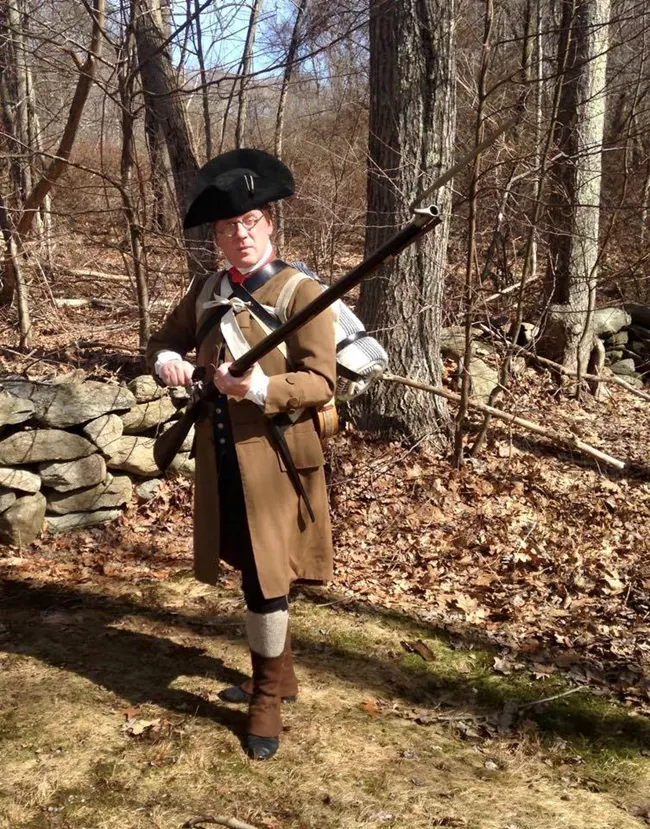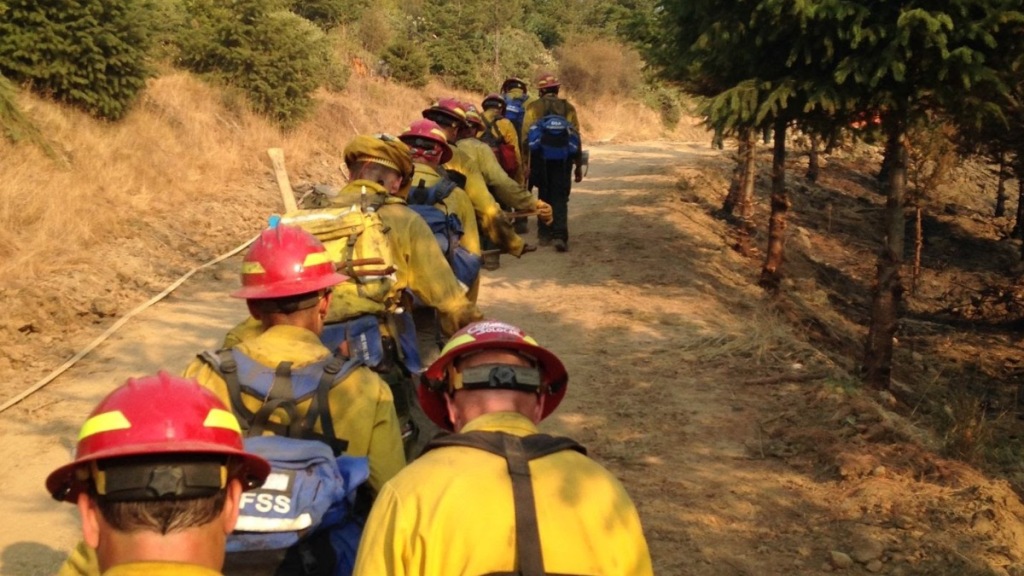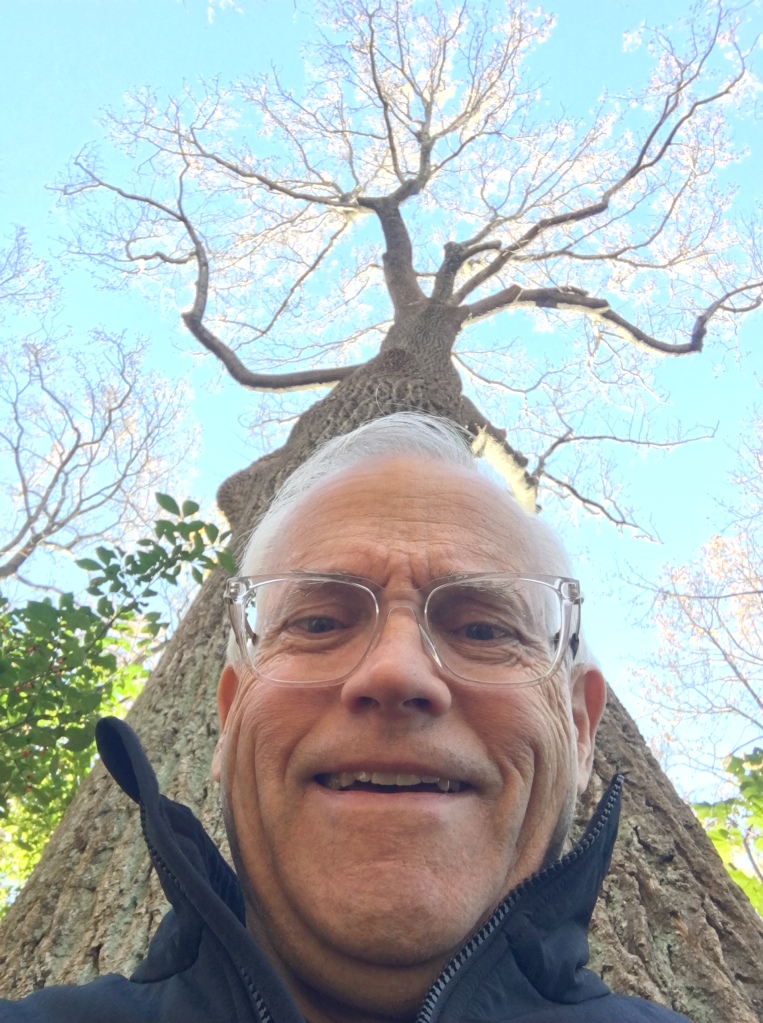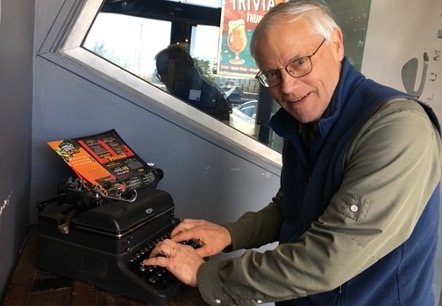Home » Calls to action
Category Archives: Calls to action
Remembering John Barth

I read in the papers recently, that author and teacher, John Barth, had passed on – probably to one of the many fictionalized landscapes and communities that he so colorfully described all around the Chesapeake.
Being a Chesapeake Bay native, Barth captured my interest at a young age. His early works, such as The Sot-weed Factor and Giles Goat Boy, kindled my love of reading. Once hooked, I continued to buy and read his books with salacious delight. I remember fondly Tidewater Tales, Somebody the Sailor, and Coming Soon. Today, even short references to his anecdotes get me laughing at the remembrance of fantastic sailing ships, Scheherazade, and bizarre and very personal micro-kayak races.
The most valuable lesson that I took away from reading his books was the importance of breathing life into characters in order to give readers a visceral reaction to a scene. Whenever readers compliment one of my works, as to how a certain passage affected them, I always tell them to read Barth. Although fictional, his work gives the reader a deep appreciation for what the common settler’s life might have been like in the past, warts and all.
A toast to John Barth. May your books always be available in print.
Respectfully,
Ned
Ned Tillman is the award-winning author of The Chesapeake Watershed, and author of the newly released Good Endeavour – a highly engaging historical novel about central Maryland.
I Ate a Pear One Day
I was all alone in my home this morning when I felt this urge to get up and go downstairs. I walked into the kitchen and there it was – a ripe D’Anjou pear just waiting for me. It was sitting all alone on the counter, obviously left for me to consume. I took a close look at it and it was clearly time for it to go. It was my honor to oblige – a primordial urging came over me, I wanted to consume this fruit and satiate my hunger.
On inspection, I saw that it had that green/yellow, rather tough skin marked with dark lines and bruises. I picked it up, washed it off and then turning to look out the window, I took a soundless bite and smiled.
Although still quite firm, my teeth cut into it’s succulent flesh and the juices poured out, into my mouth, and then out of the corners of my smile and dribbled down my chin. The skin was a little tough and a tiny bit bitter, but the experience was heavenly. I closed my eyes and just let the sweet juices flow throughout my mouth and down my esophagus. I don’t know how long I stood there enjoying every minute of the encounter, but I know I had never experienced such a treat before.
I hope that in the future I will always eat ripe fruit, with my eyes closed, focusing totally on the moment and on the tastebuds in my mouth. My wish for you is that you live as much of your life in the present appreciating all that you have been given.
Before the Snow Flies – a guide for getting outside
I almost forgot to walk the path around the lake today. I was mesmerized by the sun shining its golden rays on the oaks, populars, hickories, and beeches. Then I recalled that the prediction for tomorrow is a mix of snoe and rain and may not be a good time to walk. So I bundled up on this 32 degree morning and headed out with a smile – ready to greet the day and all that I would discover out in nature, maybe even find other species also preparing for the snow.
The first thing I noticed were the wet stripes on the paved paths – amazing how they treat the paths and the roads here in Columbia – but highly appreciated by the older crowd that tend to walk the trails daily. I also noticed how the beeches and oaks held on to their tan colored leaves – for some reason or other. I love how many strategies are involked by all parts of the natural world. Look up marcessence.
I noticed black buzzards gliding high overhead and a few red-shoulder hawks calling to one another. I smiled at the multi-hued mosses and ferns and the still green skirt of aquatic primrose on the edges of the lake. The lake was also decorated with interlocking, one to three-foot long crystals of ice that had not been here yesterday nor the one-to-six inch bubbles of methane from the decaying aquatic vegetation on the lake floor. I marvel at the laws of physics and the sense of order I feel walking around in the woods.
A raft of hooded mergansers saw me before i saw them as they skittishly made for the far shore. They were accompanied by a lone, white and gray seagull hanging with them. I also caught a glimpse of a bluebird and a full display of plumage on a great blue heron dining on sunfish. Gray squirrels scattered about, deeply focused on their mating routine that uses physical chases to court their mates. Formations of Canada geese took to the skies as I passed. I saw no persimmons and no wild grapes but did see the cedar waxwings and robins, downing as many fermented crabapples as possible, their drunken chatter filled the branches on this beautiful day.
I wondered how this might all change with the weather – not just, this weekend’s storm but the longer term impacts from a warming climate. I wonder what I will do. I have thought about this now for decades and have changed some of my behaviors. We have done a lot, but there is so much more we can do. I will try to consider the Earth and its fragile veneer of an atmosphere in everything I do this year. I want my kids and their kids to benefit as much as I have from our lush, goldilocks climate.
They Came at Night – from Chapter 9
Here is a second taste of what is to be found in the historical novel, Good Endeavour. Be sure to read the first taste I posted last week….or just order this one on line or from me. ned@sustainable.us

When Eli heard his father go out the front door, he threw off his covers, put on his coat, and went outside to join him. He was shivering from fear of their late-night callers but figured his father could use all the help he could get. Eli noticed that his father’s gun was no longer by the front door.
Once Eli was on the porch, he saw his father standing tall in the darkness and holding his loaded musket. Facing him was a ragtag horde of men and boys clustered around the clearing. It was hard to see them all in the shadows, but several had muskets, and each had an empty burlap gunnysack for hauling home their bounty.
Eli couldn’t tell how many men were there, but none of them said a thing. They just stared at him as he walked up and joined his father, and like a pack of starving wolves circling its prey, the vigilantes’ eyes gleamed with hunger.
A small man in front held a lantern in his right hand and a musket in his left. But even with that light, it was hard to identify any of the men. Some wore masks and caps, and others wore scarves to hide their faces and to protect them from the bitter cold. Eli thought he might have seen one or two before but couldn’t be sure. He stood up as tall as he could next to his father and waited to see what would happen next.
Eli saw minute snow crystals falling from his father’s breath as he waited. The sap from a tree in the woods exploded from the cold.
The men took a few steps closer, brandishing their weapons. It was clear they were wondering whether to shoot or charge this old man and his son. The odds were in favor of the visitors. It was clear to everyone in the clearing that this would be a life-or-death confrontation, win or lose, and neither side could afford to lose.
A tense silence hung like fog in the darkness. It may have lasted a minute or maybe two. Eli’s knees were shaking, his heart was hammering in his chest, and he could not breathe. He remembered his father’s comments that at some point when civil authority fails, your family’s safety comes down to just you standing up for what is right.
Thanks for reading this tidbit. Hope you enjoyed it. Order copies of the whole book here.
Something for Everyone!
I have been writing for the past 20 years and now have an engaging offering of books – something for everyone in the family and friends too – this holiday season.
The Chesapeake Watershed – Buy this one for young adults, newcomers to this region, as well as anyone who grew up around the Bay. This book won two national book awards – one for Excellence in Journalism.
Saving the Places we Love – Follow the author across the country to learn how our ancestors took dramatic steps to protect out mountains, rivers, oceans, forests, and plains. This book has won awards for its colorful descriptions of how we preserved so many areas for future generations to enjoy. Good for any one who loves the great outdoors and would like to get a handle on the preservation, conservation, and environmental movements of the 19th, 20th, and 21st centuries.
The Big Melt – An inspiring, coming-of-age story set in the near future. Short-listed for two book awards. The teenage protagonists are shocked by the climate catastrophes that hit their home town, but quickly take action to combat the destrution. A must-read for all young adults and anyone who wants to know what they can do to help mitigate the pending disasters. This book has inspired young and old to take action to protect our environment and our climate.
Good Endeavour – A thoughtful look at how some of our ancestors might have dealt with the challenges of the past and how the lessons they learned can be of value to the challenges we face today. This brand new book is loved by those looking for an engaging story of America and readers concerned about the future.
These books have all been approved by many local school systems and county libraries. Also selected for various book clubs such as the one at NASA. They all reflect the tricky nexus between humans and nature. Order your books here: scroll down to the book(s) of your choice. Place your order soon.
Enjoy the holidays.
Ned Tillman
An Incident from Chapter 4 of Good Endeavour
For those who have not read my latest historical novel, here is a snippet that sets the stage for the rest of the novel.
Maryland Colony, 1696
A twig snapped. Eli’s limber body froze in a crouching position and his heart began to race. His eyes scanned th rolling land before him as he peered back into the still, green, shadowy darkness of the forest.
Glancing toward the snapping sound that had caught his attention, a quick movement caught his eye—a mere flutter of a single leaf along the far side of the clearing. What was that, he wondered? Could a breeze be so slight as to move only one leaf, while all its companions did not bother to stir? Or was it something else—a shadow, a deer, or even a person along the forest’s edge?
Check out the reviews on Amazon, Goodreads, and Barnes and Noble. You can order here.
Recent Editorial Reviews for Good Endeavour – Wow!
Take a moment and read these totally independent editorial reviews of Good Endeavour – my most recent historical novel. They will give a real insight into the value of this engaging and inspiring book. As you can imagine, I was delighted with these insights and accolades. I hope all readers are so inspired. Ned Tillman
The Story of America in a Family Farm – Ramsey Hanhan, Author, Fugitive Dreams
A family farm in the backwaters of Maryland. Ned Tillman turns its multi-generational saga into the story of a nation. Avid reader of history that I am, I long for books such as this that tell the personal story in history, animating its dormant stage with characters much like ourselves. Tillman does this, and does it well in Good Endeavour.
While reading it, I lived with the family, generation after generation, sharing their kitchen table and concerns, their joys and sorrows. The farm’s layout became my own memory. On that ledge overlooking the Gunpowder Falls, I sat with one or another character, contemplating our interdependence on nature. For this book is not only a history of people, but a natural history of the land – the soil, the trees, the shrubs, mushrooms, and wildlife, and the impact generations of human life has had on them. The trip West loses me in a poetry of nature, its beauty, and its power to heal and nurture the spirit.
The main line of characters model America’s best self – a self that has to be reinvented every generation. The idealized vision does not obscure America’s shortcomings. The book is rife with scenes of exploitation, violence, slavery, and war. At every turn, the characters have choices to make, and the choices they make as individuals ultimately come to shape America. That is Tillman’s empowering message throughout. Tillman conveys a sense of urgency by making the characters speak and think as we do today. On some pages, I thought I was reading a story set in modern-day America.
What lessons can we learn from the past? Every generation has faced choices. It is up to us to choose wisely. As a fairly recent immigrant yearning to understand America, I find this book an illuminating gift.
“Most relevant to today’s social needs.” Rev. Msgr. Richard H.Tillman
I like the honesty and candor of the author. Even though the book is a historical novel and, therefore contains fiction the predominant truth that it conveys tells a story most relevant to today’s social needs.
“The book inspires readers to think more deeply about their own past.” George Berkheimer, The Business Monthly
“Ned’s books engage readers in caring about our past, our impact on our planet, and how to deal with the moral challenges we face today.” George Clack, The Little Patuxent Review
“I highly recommend it.” Tracey Manning-Professor University of Maryland
Reminiscent of Edward Rutherford’s or James Michener’s books but on a more accessible scale. Good Endeavour is a great read, hard to put down, and draws the reader in to care about the characters and the issues they deal with.
Smoke Gets in your Eyes

Smoke gets in your eyes – again and again. I don’t know if you recall, but the worst air quality days of the year came back to mind while reading an article in the Banner about smoke from Virginia and WVA fires. Last spring, smoke from the Canadian fires produced such bad air quality that many of us suffered from visual, sinus, and respiratory ailments. As a result, some of us did not go out and even added filters to our indoor air circulatory systems. I also felt a strong claustrophobic feeling when trapped in my home to do my best to avoid the poor-quality air outside. I also recall smoke from California in precious years, impacting us here on the East Coast.
I wonder what it would take to burn down the forests of the Eastern woodlands. We have billions of trees, miles of aging electric utility lines, extended droughts, and increasing winds from the over-heating oceans – all of which will probably result in more fires and many more days of bad air quality. I hope these smaller fires will help keep us focused on doing whatever we can do to slow and reduce the use and mis-use of fossil fuels. We have to take actions now in everything we do. These fuels are clearly one of the major contributors to the warming of the surface of the planet – our biosphere, our home.
Ned Tillman, author of The Big Melt
Columbia, MD
Art Inspires Us All
One of the biggest changes I have seen in the environmental and climate arenas is the widespread use of art to share our feelings, emotions, and fears for the future. This is widespread in the literary world and I am happy to be able to share my books – each of which is at the nexus of human and natural forces. I explore both the good and the bad of human involvement with the planet through my writing.
I would like to call your attention to the opportunity to peruse a visual art exhibit that is close to home that has inspired me. The annual Willowbrook Painters Art Show is being held at The Meeting House in the Oakland Mills Village Center. My wife, Kathy, has some of her work in the show as do many of her colleagues from the Willowbrook Studio.
I would like to invite you to the Meet the Artist Reception this weekend on Sunday, November 12 from 3 to 5pm. In addition to the artwork hanging in the gallery there will be an art market held during the reception. For more information about the show, please click here.
Hope to see you there.

Listen to Ned on this Good Endeavour Podcast
If you want to drill down and find out a great deal more about Ned’s historial novel, Good Endeavour, listen to this podcast, “Conversations with Rich Bennett”. It may just answer many of your questions and will provide a wealth of insights about Maryland History and how our collective ancestors might have dealt with the major moral issues of their time. To listen, click on this link. The episode is called: Family stories, traits, and heirlooms.
If you know of other podcasters that you like, let me know and I will try to get on their shows. Better yet, send this link on to them. It will give them a good sense of the breath of topics I cover in the book.
I still have the same three goals:
- Engage readers in the great American Experiment
- Provide perspective on our current challenges
- Inspire readers to write their own memoirs, sagas, or novels
If you have not read this book yet, it is available on Amazon.com, Barnes and Noble, and GoodReads.






